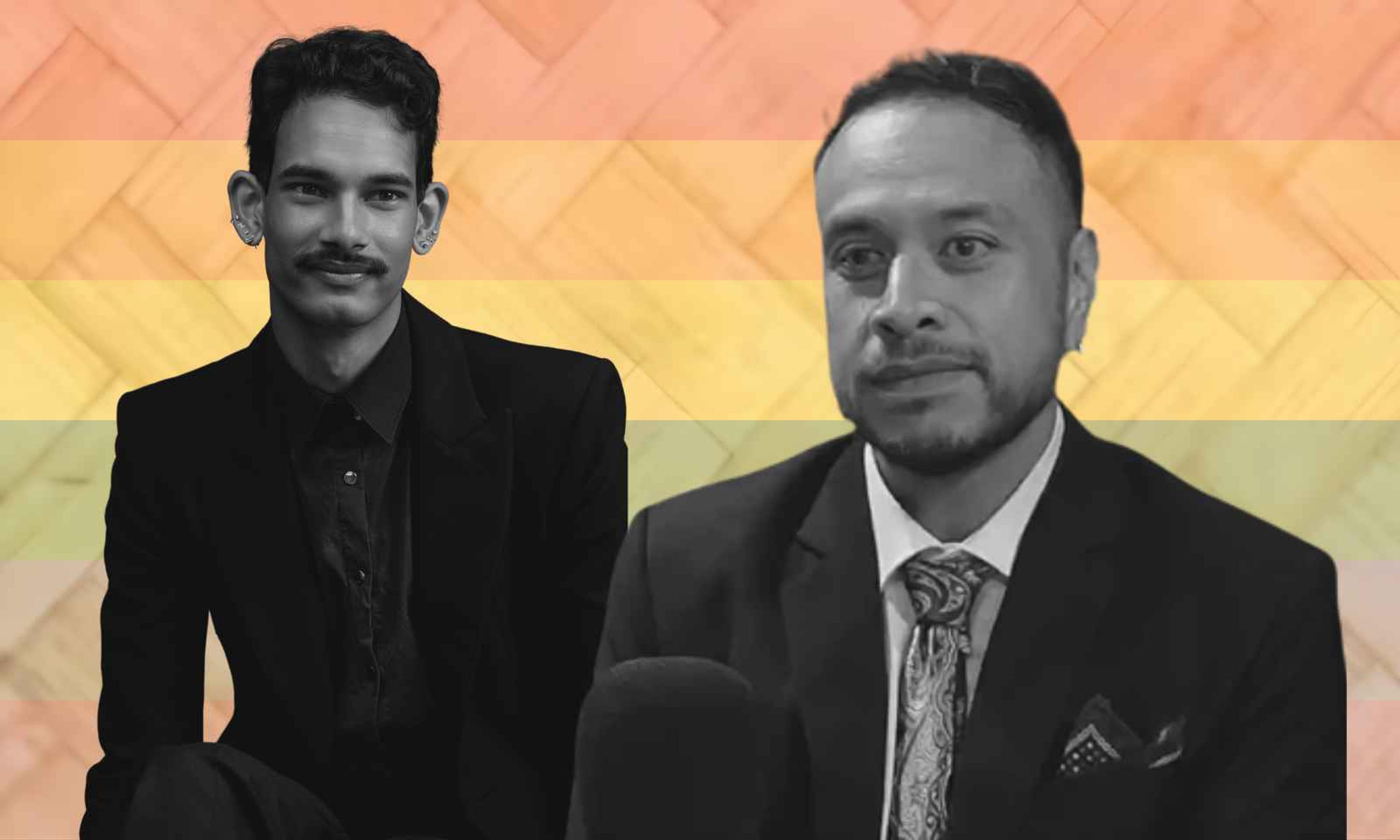

ACT Party leader David Seymour during the second reading of the Treaty Principles Bill that was decisively rejected in Parliament on Thursday.
Photo/Parliament TV
Controversial Treaty Principles Bill defeated
The ACT Party was the only supporter of a bill considered by many as divisive. But party leader David Seymour remains confident there is public support.



Budget relief buys time for Ōtara-Papatoetoe, but pressures remain


Moana Pasifika end Lautoka curse to win 'Battle of the Pacific'


NZ's Pacific Rainbow+ people are avoiding healthcare after facing discrimination - study

Budget relief buys time for Ōtara-Papatoetoe, but pressures remain


Moana Pasifika end Lautoka curse to win 'Battle of the Pacific'
The controversial Treaty Principles Bill has been comprehensively defeated during its second reading on Thursday.
The ACT Party, which introduced the bill in November 2024, was the only party to support it, with 11 votes in favour and 112 votes against.
As expected, both the National Party and NZ First opposed the bill.
The bill’s introduction was a condition for the ACT Party to join the three-party coalition government after the 2023 election.
However, National and NZ First previously stated that they would not support the bill beyond the second reading.
Opposition leader Chris Hipkins, during his contribution to the House debate, described the arrangement as "a grubby little bill born of a grubby little deal."
The bill aimed to define the principles of the Treaty of Waitangi within legislation to prevent varying interpretations that could lead to what ACT believed would be unequal rights under the law.
The second reading of the bill in the House began in a familiar fashion, marked by protest and controversy.
Proceedings were disrupted when a man in the public gallery interrupted ACT leader David Seymour’s speech, prompting Speaker of the House Jerry Brownlee to request police assistance.

Labour MP Willie Jackson was escorted from the House after refusing to withdraw his comment and apologise. Photo/Parliament TV
During the debate, Labour MP Willie Jackson was escorted from the House for calling Seymour a liar and a "disgrace to the House".
When asked by the Speaker to withdraw and apologise, Jackson refused and was removed by Brownlee.
In November, more than 40,000 people marched on Parliament to voice their opposition to the bill, culminating in a nine-day hikoi.
Over 300,000 people submitted feedback on the bill, with 90 per cent opposing it.
Despite strong indications that the bill would be rejected, Seymour remained confident that the public supported it.

In November 2024, people opposed to the bill marched on Parliament in Wellington. Photo/PMN News/William Terite.
He told the House that past bills, such as the End of Life Choice Act, faced significant opposition but later gained popularity in a referendum.
Seymour argued that the country need not be divided by a partnership between races, saying, "A free society requires hard work and uncomfortable conversations. I’m proud that my party has had the courage, clarity, and patriotism to address these difficult issues."
Hipkins took pride in how New Zealanders united over the last six months, saying, “To say loud and clear, ‘This is not us, this is not Aotearoa New Zealand’.
“So, let's finally consign this grubby little bill to the scrapheap of history, where it can take its place alongside the other darker acts of this House that have also been consigned to our history.”
Some speakers during the debate highlighted that Prime Minister Christopher Luxon was not there for the second reading.
Luxon told Pacific Mornings on Tuesday that he would not be in Parliament due to other commitments. Still, he was adamant that the National Party did not want to engage with the bill and that it would be voted down, “and we can wrap it up and move on to things that Kiwis are more interested in.”
NZ First MP Casey Costello told the House that the party leader, Vaovasamanaia Winston Peters, wanted to attend the second reading but “unfortunately is boarding a plane as we speak”.
RNZ reported that a livestream intended to broadcast from inside Parliament to Toitū Te Tiriti social media pages was abruptly cut short after being supposedly barred from entering the gallery.
The livestream lasted only 13 minutes and began with a short kōrero from Māori Party co-leaders Debbie Ngārewa-Packer and Rawiri Waititi.
In the video, Te Pāti Māori staffer Himiona Grace apologised to viewers for the abrupt ending, saying the party believed it had permission to broadcast.
Speaking on Pacific Mornings earlier this week, Seymour described his bill as “the start of a journey” rather than its conclusion.
“People need to ask themselves, what are the good arguments that have been put up against the principles I’ve proposed?
“That the Parliament has the full right to make laws, that the Government should uphold the rights and the taonga of all New Zealanders, including Māori, and that we should all be treated equally before the law?”